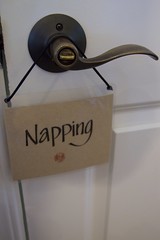Search
Want a really stupid adjective to use on an employee’s performance review?
Consider this your performance review ProTip for Tuesday, courtesy of this recent decision from a Texas federal court, in which an employer’s summary judgment motion was denied, and a Mexican-American plaintiff’s race and national origin discrimination claims will proceed to trial.
The smoking gun, it seems, was an affidavit from one of the plaintiff’s supervisors filed in support of the employer’s motion for summary judgment, in which the supervisor stated, “I advised Ms. Garza that this ‘ghetto-ness’ would no longer be tolerated, and that she would be terminated if it continued.” The plaintiff argued that this statement was direct evidence of discrimination against her. The defendant countered with the argument that “cases in which comments containing the word ‘ghetto’ have been viewed as facially discriminatory generally involve African American employees, while Garza is Hispanic.”
 The Employer Handbook Blog
The Employer Handbook Blog





 Ladies and gentlemen, the
Ladies and gentlemen, the 
 According to
According to 